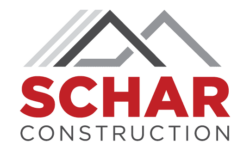Whether you want to add a patio to your house or you’ve decided on brand-new home construction, you will finalize the details in a formal contract with the construction company. These contracts typically include such specifications as the scope of work, timelines, budgets, fee structures, insurance requirements, and dispute resolution methods.
The residential building industry uses a variety of contract types, including one known as the “cost-plus” pricing model. Cost-plus contracts state that contractors will receive reimbursement for costs related to the project, plus a set amount in profit. But how do cost-plus contracts differ from other kinds of contracts, and how do you know which one is right for you?
In this post, we cover the basics of cost-plus contracts, how they differ from other construction contracts, and their advantages and disadvantages. If you have any other questions about construction contracts or would like a detailed estimate for your home construction project, contact Schar Construction today!
What Kinds of Cost-Plus Contracts Are There?
As the name suggests, cost-plus contracts include two elements: the cost of the project and the extra (“plus”) that the contractor will receive on top of that. However, even cost-plus contracts vary in how they define the “plus.” A few common fee structures include:
- Fixed fee: Cost-plus fixed fee (CPFF) contracts reimburse contractors for materials, plus a flat fee that you agree on during the creation of the contract.
- Percentage of cost: In cost-plus percentage of cost (CPCC) agreements, contractors receive a profit based on a percentage of the total project costs. Rates vary by project and industry, but contracts often set them between 5% and 25%.
- Incentive fee: Cost-plus fixed incentive fee (CPIF) arrangements provide additional pay to contractors beyond the predetermined fee for meeting specified targets, like cost savings or faster completion.
- Award fee: In cost-plus award fee (CPAF) agreements, the contractor can earn an award on top of the specified fee for exceeding the expectations outlined in the original contract and construction documents.
You and the construction company also need to agree on the definition of costs when writing up the contract. In most cases, cost-plus contracts define project costs as those directly associated with construction activities, including labor, materials, and any subcontractor markup.
How Do Cost-Plus Contracts Differ from Other Contract Types?
While cost-plus pricing is a good fit for many construction projects, it isn’t the only option you and your contractor can choose for your upcoming house renovation plan. Depending on the details of the project and personal preferences, you may also see the following construction contract types:
- Lump-sum contracts: These contracts stipulate a fixed fee for construction services, which both parties agree upon at the outset of the project.
- Guaranteed maximum price (GMP) contracts: These contracts cap the price you will pay at a certain threshold, above which the construction contractor absorbs any additional costs. While GMP contracts can exist on their own, other contract types can incorporate GMP clauses to protect owners.
- Time and materials (T&M) contracts: Similar in some ways to cost-plus contracts, these contracts also establish a predetermined fee for both materials and labor. However, in T&M contracts, the specified labor costs are usually an hourly rate rather than a fixed fee or percentage.
- Unit price contracts: These contracts break projects into repeatable units of work rather than a fixed cost for an entire project. You will often see this kind of contract as part of a large public project rather than a home construction project.
What Advantages Do Cost-Plus Contracts Have?
Each construction contract type has pros and cons, and choosing the right one requires balancing several factors. As a homeowner, cost-plus contracts tend to have the following advantages:
- Improved flexibility: Because cost-plus pricing covers the contractor’s materials and profit, it may make for easier contract negotiations and a quicker start time. This type of contract may prove particularly useful for projects without a clearly defined scope at the outset.
- Greater transparency: With lump-sum contracts, contractors have to estimate the price of goods in advance, which may or may not accurately reflect the actual costs. With cost-plus contracts, however, you can see the true costs of a project as it progresses.
- Higher work quality: Fixed-price contracts may create added pressure for some construction contractors to work faster or find less expensive materials. By taking this concern out of the equation, cost-plus contracts allow contractors to focus on providing the best possible work quality.
What Disadvantages Do Cost-Plus Contracts Have?
On the flip side, you may find that cost-plus contracts often come with the following disadvantages:
- Undefined final cost: Probably the biggest downside to the cost-plus pricing model is that you will not know the total project price at the outset. You will receive an estimate, but not an exact cost. Some cost-plus contracts specify a guaranteed maximum price for this reason.
- Potential disagreements: Unlike fixed-fee contracts, the homeowner in cost-plus contracts agrees to pay for materials. However, you and the contractor may not always agree on the materials needed or what constitutes a fair cost. In addition, you may feel responsible for constantly staying on top of costs during the scope of the project.
- Unspecified timelines: Because cost-plus contracts guarantee a certain profit regardless of how long the construction work takes, some contractors may not complete the project promptly.
Clear, regular communication can help prevent disputes and increase peace of mind, as can working with an experienced contractor you trust.
Trust Schar Construction with Your Home-Building Needs
Whether you need home remodeling or custom home design, Schar Construction has the expertise to get your project done right. Our professionals have nearly 60 years of combined experience in the construction industry, have worked on over 400 projects, and have completed 50 homes.
At Schar Construction, we pride ourselves on our ability to communicate clearly, meet deadlines, stay within budget, and exceed our customer’s expectations. Call us today at 541-255-1624 to see how our team can help you with your home construction needs in or around Eugene, Oregon.



